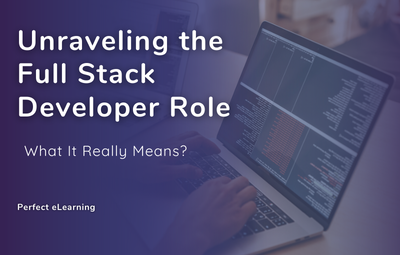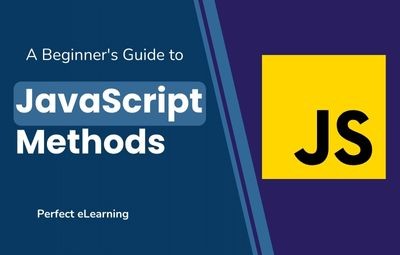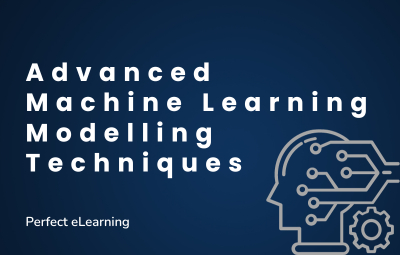

In the fast-paced world of technology, the role of a Full Stack Developer has become increasingly vital. The demand for these professionals is on the rise as businesses seek versatile and skilled individuals who can handle a variety of tasks. In this article, we will delve into what it truly means to be a Full Stack Developer and the key aspects that define this role.
1. What is a Full Stack Developer?
A Full Stack Developer is a tech-savvy professional who possesses a comprehensive understanding of both front-end and back-end development. Unlike traditional developers who specialize in one area, a Full Stack Developer can work on all aspects of a web application. This includes managing databases, handling servers, designing user interfaces, and ensuring seamless user experiences.
2. The Skills of a Full Stack Developer
Front-end Development
A Full Stack Developer should have a strong grasp of front-end technologies such as HTML, CSS, and JavaScript. They must be able to create visually appealing and interactive user interfaces that enhance the overall user experience.
Back-end Development
On the back-end, a Full Stack Developer needs to be proficient in server-side languages like Node.js, Python, Ruby, or PHP. They are responsible for the logic and functionality that happens behind the scenes of a web application.
Database Management
Database management is a critical skill for Full Stack Developers. They should be well-versed in working with databases like MySQL, MongoDB, or PostgreSQL to store and retrieve data efficiently.
Version Control
Version control systems like Git are essential tools for Full Stack Developers. They enable them to collaborate effectively with other team members and keep track of changes in the codebase.
Basic Design Skills
While not necessary to be a professional designer, Full Stack Developers should have a basic understanding of design principles. This helps them create user-friendly interfaces and collaborate better with designers.
Project Management
Full Stack Developers often work on various projects simultaneously. Strong project management skills allow them to prioritize tasks, meet deadlines, and deliver high-quality results.
3. Advantages of Being a Full Stack Developer
Versatility: Full Stack Developers can work on different aspects of a project, making them valuable team members.
Cost-Effectiveness: Hiring one Full Stack Developer to handle multiple tasks can be more cost-effective for businesses.
Faster Development: With a Full Stack Developer, there is no need to wait for handoffs between front-end and back-end teams, leading to faster development cycles.
Holistic Understanding: Full Stack Developers have a broader understanding of the development process, which allows them to make informed decisions.
4. Challenges of Being a Full Stack Developer
Skill Acquisition: Acquiring expertise in both front-end and back-end technologies requires time and dedication.
Keeping Up with Trends: The tech industry evolves rapidly, and Full Stack Developers need to stay updated with the latest technologies and frameworks.
Workload: Handling various aspects of a project can be overwhelming, especially during tight deadlines.
Depth vs. Breadth: Full Stack Developers may not have the same level of expertise as specialized developers in specific areas.
5. How to Become a Full Stack Developer
Formal Education vs. Self-Learning
While a formal education in computer science or software engineering can provide a solid foundation, many Full Stack Developers are self-taught. Online tutorials, courses, and coding bootcamps offer accessible pathways to learn the required skills.
Online Resources and Courses
Numerous online platforms offer courses tailored to Full Stack Development. Websites like Udemy, Coursera, and freeCodeCamp provide comprehensive resources for aspiring Full Stack Developers.
Building Personal Projects
To gain hands-on experience, aspiring Full Stack Developers should build their projects. Working on personal projects allows them to apply their skills in real-world scenarios and showcase their capabilities to potential employers.
Joining Open Source Projects
Contributing to open-source projects provides valuable exposure to real-world development practices and collaboration with experienced developers.
6. Future Trends in Full Stack Development
As technology continues to evolve, Full Stack Developers can expect several trends in their field. These include the rise of low-code development platforms, the integration of AI and machine learning in web applications, and the increasing importance of cybersecurity.
Conclusion
In conclusion, a Full Stack Developer is a versatile and skilled professional who plays a vital role in modern web development. With expertise in both front-end and back-end technologies, these developers can handle diverse tasks efficiently. The demand for Full Stack Developers will likely continue to rise as businesses recognize the value of their abilities in creating innovative and user-friendly web applications.
Frequently Asked Questions (FAQs)
Q1. What is the average salary of a Full Stack Developer?
A1: The average salary of a Full Stack Developer varies based on factors such as experience, location, and the size of the company. On average, it ranges from $70,000 to $110,000 per year.
Q2. Can a Full Stack Developer work remotely?
A2: Yes, many Full Stack Developers have the flexibility to work remotely. The nature of their work allows them to collaborate with teams from different locations.
Q3. How long does it take to become a Full Stack Developer?
A3: The time required to become a Full Stack Developer varies depending on the individual's background and dedication. With focused self-learning and practice, some people can acquire the necessary skills in six to twelve months.
Q4. Is it necessary to know all programming languages to become a Full Stack Developer?
A4: No, it is not necessary to know every programming language. While Full Stack Developers should be proficient in a variety of technologies, they can specialize in specific stacks based on their interests and career goals.
Q5. What are the best programming languages for a Full Stack Developer?
A5: The best programming languages for a Full Stack Developer depend on the project requirements and the technologies in demand. Common choices include JavaScript, Python, Ruby, and Java.
Perfect eLearning is a tech-enabled education platform that provides IT courses with 100% Internship and Placement support. Perfect eLearning provides both Online classes and Offline classes only in Faridabad.
It provides a wide range of courses in areas such as Artificial Intelligence, Cloud Computing, Data Science, Digital Marketing, Full Stack Web Development, Block Chain, Data Analytics, and Mobile Application Development. Perfect eLearning, with its cutting-edge technology and expert instructors from Adobe, Microsoft, PWC, Google, Amazon, Flipkart, Nestle and Infoedge is the perfect place to start your IT education.
Perfect eLearning provides the training and support you need to succeed in today's fast-paced and constantly evolving tech industry, whether you're just starting out or looking to expand your skill set.
There's something here for everyone. Perfect eLearning provides the best online courses as well as complete internship and placement assistance.
Keep Learning, Keep Growing.
If you are confused and need Guidance over choosing the right programming language or right career in the tech industry, you can schedule a free counseling session with Perfect eLearning experts.


